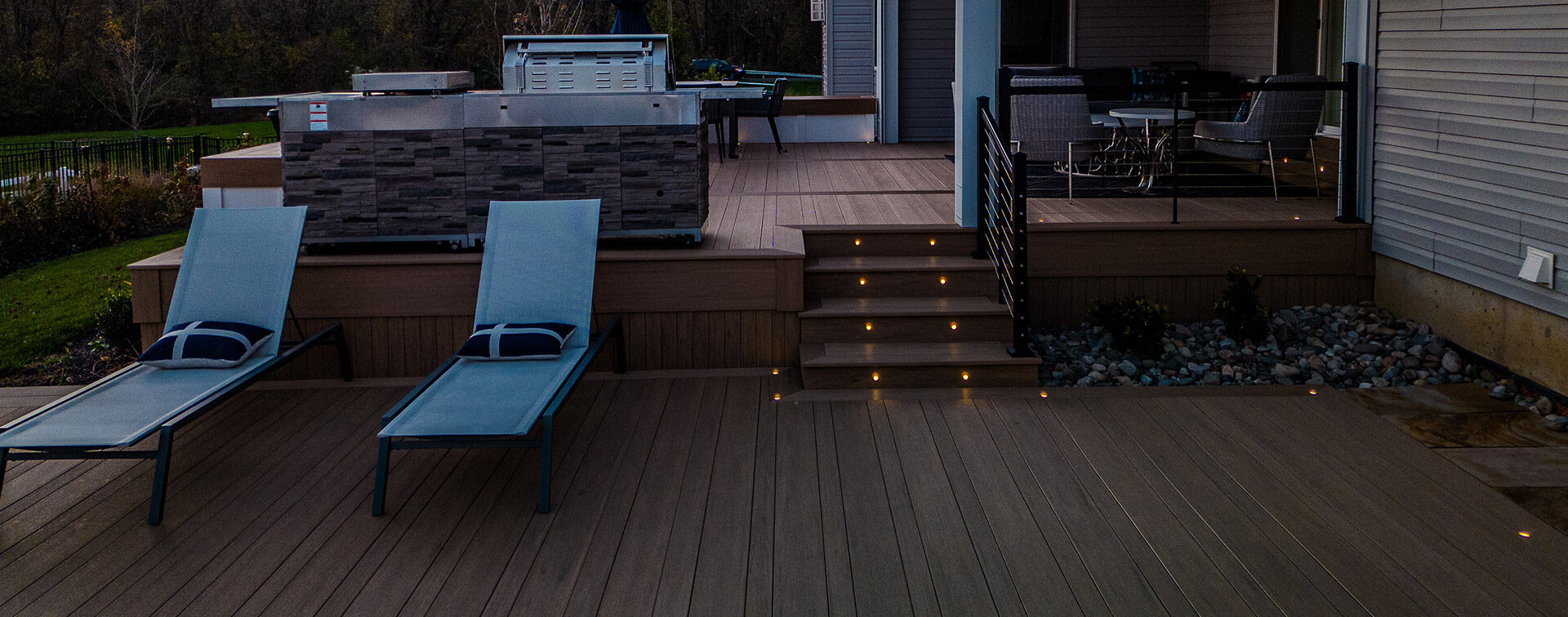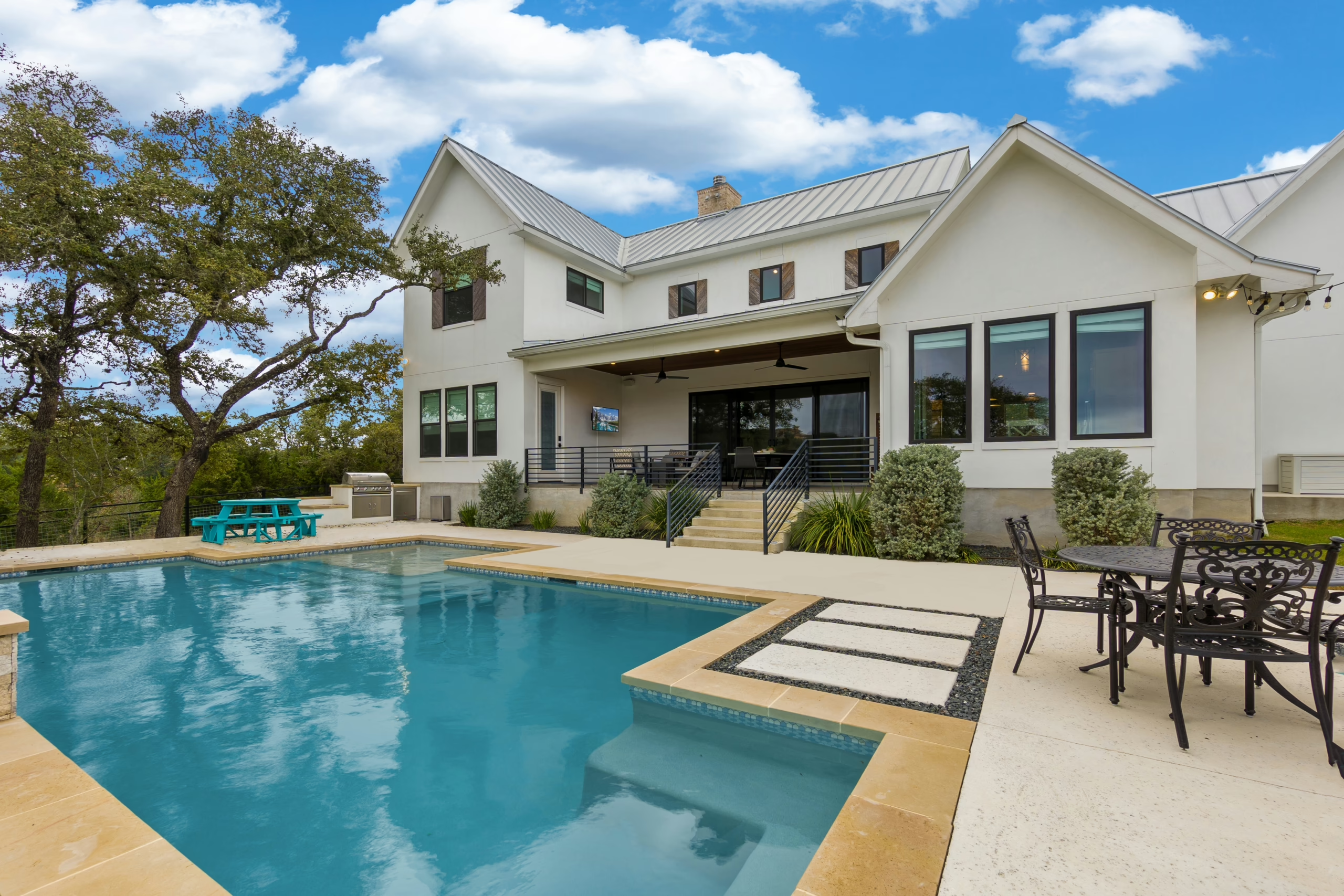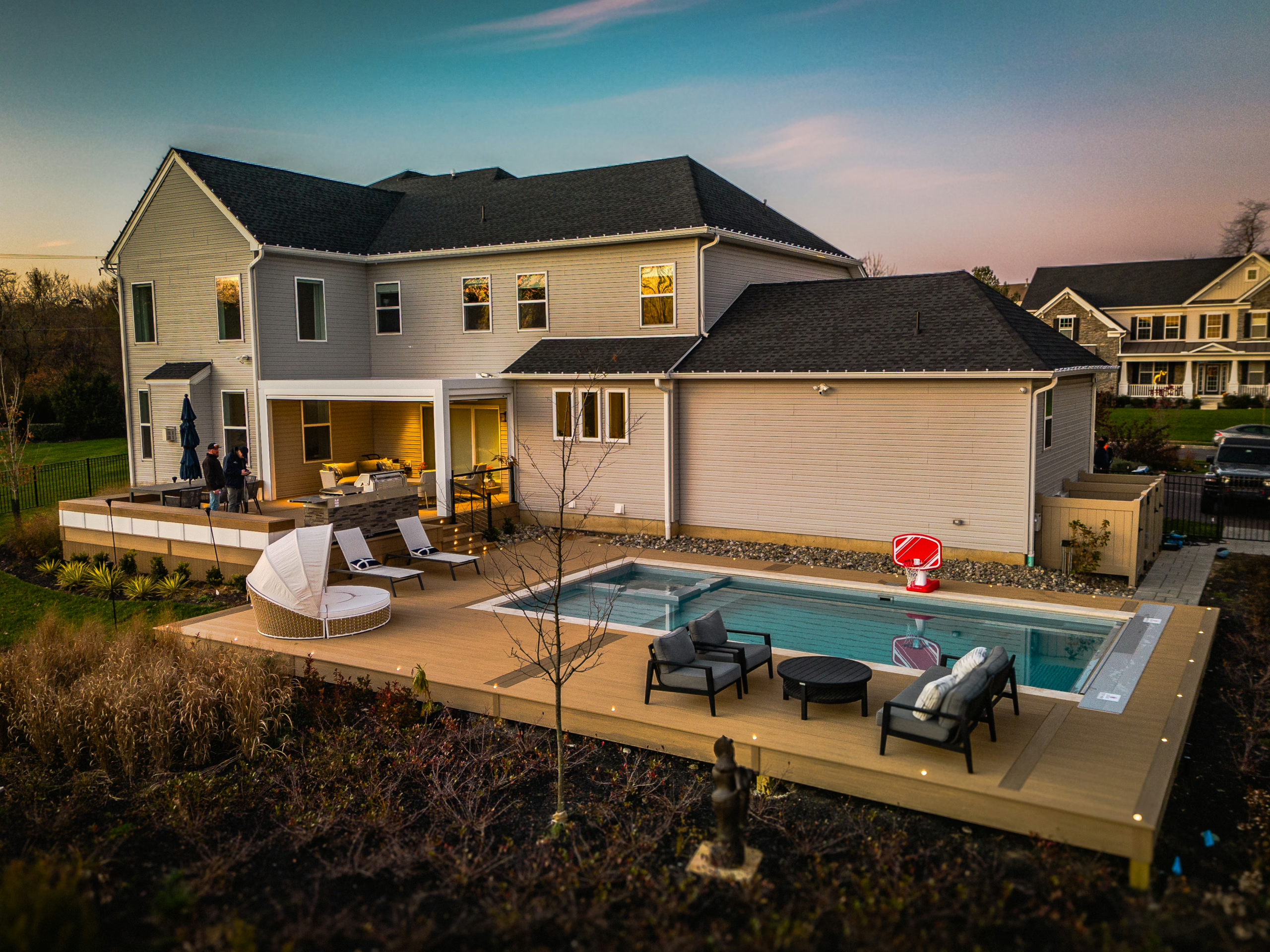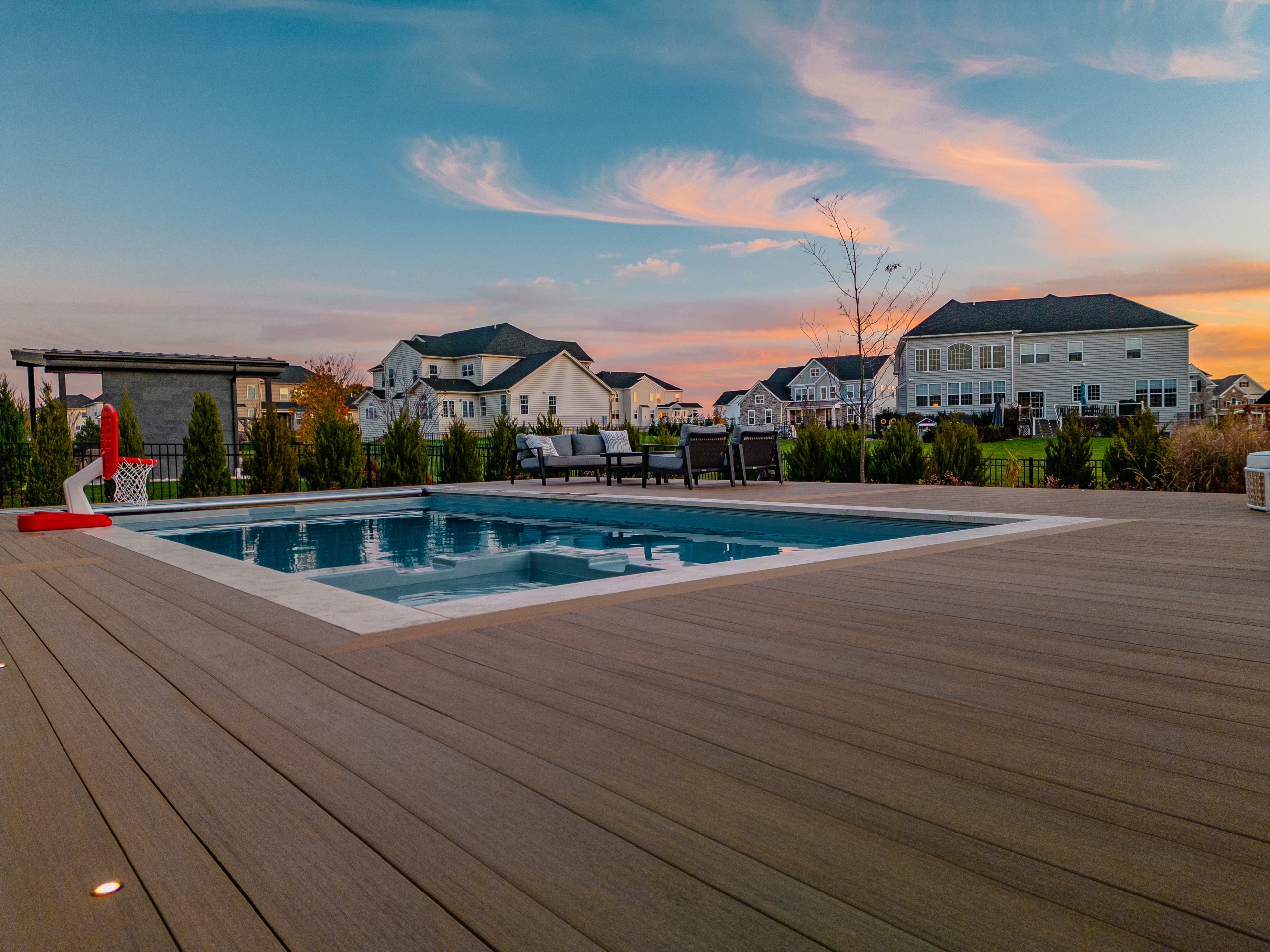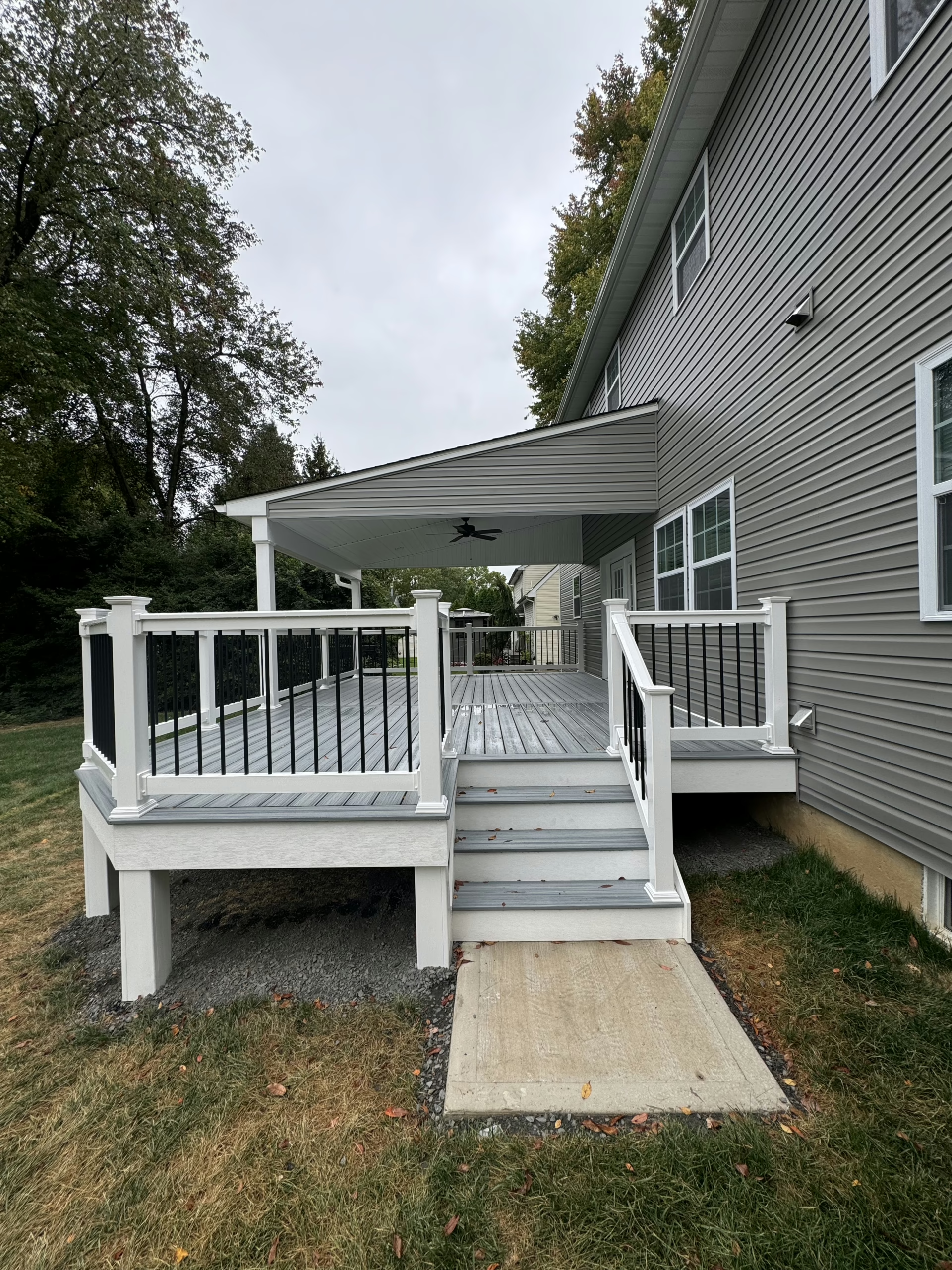So, you’re considering a pool or upgrading an existing one. Well-planned pool decking in Montgomery County, PA, not only enhances your backyard’s look but also increases your home’s value.
From a design perspective, your pool deck connects your pool to the rest of your yard. It’s where you relax, entertain, and soak up the sun. A good pool deck design will make your pool area the real deal: an outdoor living space.
What is a Pool Deck? Materials and Design Choices
A pool deck isn’t merely a path—it’s an important design and safety aspect. It adds a non-slip surface that prevents falls and delineates an area for outdoor furniture. An optimal decking choice enhances the aesthetic appeal of the pool and makes it easier to install. Let’s explore the best materials for a pool deck in Levittown, and beyond.
Concrete: The Versatile Staple
Concrete remains one of the most popular pool deck materials. It’s versatile, offering a variety of finishes, from simple broom-finished surfaces to stamped concrete that looks like tile or wood.
- Pros: Cost-effective, customizable, and durable.
- Cons: Prone to cracking due to temperature fluctuations, can feel rough underfoot.
- Best for: Homeowners looking for a budget-friendly option with design flexibility.
Concrete may also be stained or colored, transforming an otherwise unattractive gray slab into a masterpiece. But without proper expansion joints, it will crack sooner or later, especially in changing weather conditions.
Wood and Composite: Natural Beauty with Less Maintenance
Wood decks offer a warm, traditional look that naturally blends with the outdoors, so they continue to be a favorite among homeowners. Cedar and redwood are the most popular species because they have natural moisture and insect resistance. The best feature of wood decking is its long-lasting beauty, which adds character and personality to an outdoor space. In addition, wood is pleasant to walk on and very versatile, allowing homeowners to achieve the desired appearance. However, a wood deck does require some maintenance, as it needs to be sealed or stained every now and then to protect it from the elements. Over time, exposure to weather can cause the wood to deteriorate, so regular maintenance is necessary. Wood decks are best suited for homeowners who like their appearance and are willing to make a commitment to upkeep in order to preserve their beauty.
Composite decking offers a low-maintenance alternative to natural wood, and it’s an ideal choice for homeowners who want durability without constant upkeep. Made from recycled materials, composite decking is highly resistant to moisture, rot, and fading and is perfect for pool decks and other outdoor areas exposed to the elements. Its greatest benefits are its longevity and low upkeep, as it never requires staining or sealing like wood. While composite decking costs more than traditional wood initially, it may be a worthwhile investment for those who put a high value on long-term durability. For homeowners who want a maintenance-free outdoor living space, composite decking is the ideal solution.
Key Considerations: Climate, Cost, and Maintenance
When it comes to selecting a material for a pool deck, one must consider climate, cost, and maintenance. Climate is important, as various materials are better suited for various weather patterns. In cold climates, materials must be capable of withstanding freezing temperatures without cracking. While concrete is durable, it will indeed crack during winter, but composite decking will remain sturdy year-round.
Cost is also a factor. Concrete is cheaper at $14 to $35 per square foot than composite decking at $30 to $75 per square foot but lasts longer with minimal maintenance. The maintenance needed differs depending on material as well. Wood decks require sealing regularly for water resistance, concrete needs sporadic sealing and crack filling, and composite decking only occasional sweeping to keep it clean, so it is the lowest maintenance.
Through review of these variables, homeowners will be able to select the best pool deck material based on lifestyle, budget, and environment.
Adding a Pool Deck: New Builds & Upgrades
A pool decking project enhances your outdoor space. Whether building a new pool or upgrading an existing one, integrating the deck into the design ensures a seamless look.
Remodeling an Existing Pool Deck
If your current deck needs to be refreshed, remodeling is a budget-friendly way of giving the space a boost. You can resurface, stamp, stencil, or paint an old pool deck for an instant makeover. Expanding the deck or adding new material on top can also increase the use of the pool space.
For individuals who have cracks or deterioration, overlay systems are an economical way to restore a concrete deck. Composite decks can also be placed over an existing deck, offering a stylish, long-term substitute.
Conclusion
A well-designed pool deck project enhances your backyard, boosts safety, and increases property value. Whether you choose concrete, wood, or composite decking, the right material ensures years of enjoyment.
If you’re ready to transform your pool area with expert craftsmanship, The Deck Expert is here to help. Contact us today for a consultation and let’s create the perfect pool deck for your home!
